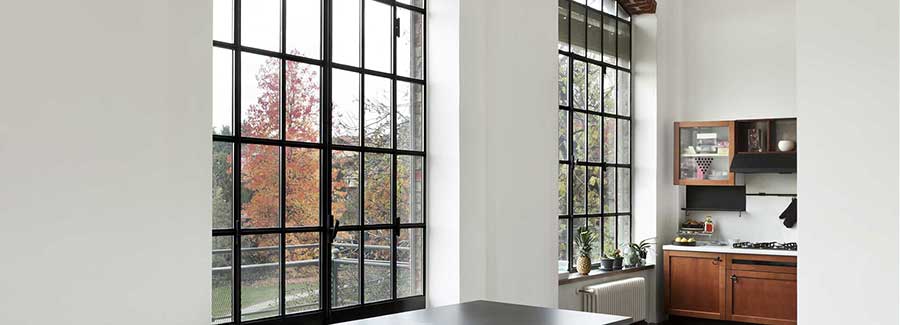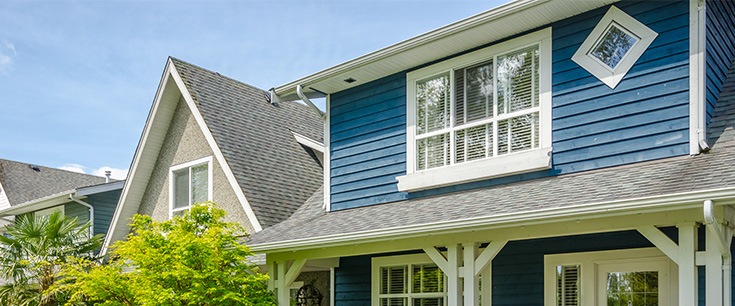The Ultimate Guide to Replacing Windows for Your Home
It’s time for replacing windows for energy savings! Does your window show wear and tear after two decades of service? Are you considering upgrading to more energy-efficient windows but unsure about the costs? Look no further. In this comprehensive guide, we’ll address all your questions and concerns about replacing windows for your home.
Discover Windows Replacement Services

Is it worth replacing 20-year-old windows?
Many homeowners wonder if it’s worth replacing windows for energy savings that have been serving them well for two decades. The answer depends on several factors, including the condition of the existing windows, energy efficiency, and potential cost savings. While 20-year-old windows may still function, they could be costing you more in energy bills due to poor insulation and wear over time. Upgrading to modern, energy-efficient options can lead to significant savings in the long run.
How much should you spend on replacement windows?
The cost of replacing windows for energy savings can vary widely depending on factors such as the size of your home, the type of replacements you choose, and any additional features or upgrades. On average, homeowners can expect to spend anywhere from $300 to $1,500 per unit, including installation. It’s essential to consider the long-term benefits of investing in high-quality, energy-efficient options, as they can lead to lower energy bills and increased home value.
What time of year is best to replace windows?
The best time to replace windows for energy savings is typical during the spring or fall when the weather is mild. However, replacement can be done year-round, so long as the conditions are suitable for installation. Avoid extreme weather conditions, such as heavy rain or snow, as they can hinder the installation process.
Is it worth it to buy expensive replacements?
While expensive options may come with a higher upfront cost, they often offer better energy efficiency, durability, and aesthetics. High-quality replacements can also help improve your home’s curb appeal and resale value, making them a worthwhile investment in the long run.
What is the cheapest time of year to buy replacement windows?
Many manufacturers offer promotions and discounts during the offseason, typically in late fall or early winter. This period, known as the “shoulder season,” can be an excellent time to purchase replacements at a lower cost. Additionally, shopping around and comparing quotes from different contractors can help you find the best deals.
Should I replace all windows at once?
While replacing all windows for energy savings at once can be more expensive upfront, it offers several benefits, including consistent aesthetics, improved energy efficiency, and potential cost savings on labor and installation. However, if budget constraints are a concern, you can opt to replace units gradually, starting with the ones in most urgent need of replacement.
Do old units decrease home value?
Yes, old units can decrease home value, especially if they are damaged, inefficient, or outdated in style. Potential buyers may see old units as a red flag and negotiate lower prices accordingly. By investing in modern, energy-efficient options, you can enhance your home’s value and appeal to potential buyers.
How many years do double-pane windows last?
On average, double-pane units can last anywhere from 15 to 20 years or more with proper care and maintenance. However, factors such as climate, exposure to harsh elements, and the quality of installation can impact the lifespan of double-pane windows.
Who makes the best replacements for homes?
Several reputable manufacturers produce high-quality replacements for homes, including See-Thru Windows. With a reputation for excellence in craftsmanship, energy efficiency, and durability, See-Thru Windows offers a wide range of replacement options to suit any home style and budget.
How messy is a replacement?
Replacement can be a messy process, involving dust, debris, and potential disruptions to your daily routine. However, reputable contractors take steps to minimize mess and ensure a smooth installation process, such as sealing off work areas, using drop cloths, and cleaning up thoroughly afterward.
Does replacing old windows increase home value?
Yes, replacing old units can increase home value by improving energy efficiency, enhancing curb appeal, and reducing maintenance costs. Potential buyers are often willing to pay more for homes with modern, well-maintained options, making replacement a smart investment for homeowners.
How much of a difference do new windows make?
New units can make a significant difference in your home’s comfort, energy efficiency, and overall aesthetic appeal. With improved insulation and better sealing, new units can help regulate indoor temperatures, reduce outside noise, and enhance natural light, creating a more comfortable and inviting living space. Specifically, energy-efficient windows can significantly enhance indoor comfort by utilizing advanced glass options. These specialized glasses are designed to reflect heat during the summer months and retain heat during the winter, ensuring your home maintains a consistent and pleasant temperature year-round. This ability to control the internal climate not only increases comfort but also contributes to reduced energy consumption and lower utility bills.
Does replacing windows damage interior walls?
When installed correctly by experienced professionals, replacement should not damage interior walls. However, minor disruptions such as dust or vibrations may occur during the installation process. It’s essential to work with reputable contractors who take precautions to protect your home and minimize any potential damage.
Should I replace the old windows before selling the house?
Replacing old windows before selling your house can be a smart investment, as it can increase curb appeal, enhance energy efficiency, and attract potential buyers. Homes with modern, well-maintained windows often command higher prices and sell more quickly than those with outdated or damaged windows.
Can units last 50 years?
While it’s uncommon for units to last 50 years without needing replacement or repairs, high-quality options installed and maintained properly can certainly have a long lifespan. Regular maintenance, such as cleaning, sealing, and inspecting for any signs of damage, can help extend their life and ensure optimal performance for years to come.
Factors to Consider When Choosing Replacement Windows
When considering replacement windows for your home, it’s essential to weigh various factors to ensure you make the right choice. Here are some key considerations:
-
Energy Efficiency:
Look for windows with high energy efficiency ratings, such as ENERGY STAR® certified windows. These windows are designed to minimize heat transfer, reducing your home’s heating and cooling costs. The material used in the window frame is crucial for maximizing energy efficiency. Options such as wood, vinyl, composite (like Fibrex® material), and fiberglass offer varying degrees of insulation and thermal performance, which can substantially impact your energy savings and costs.
-
Material:
Replacement windows come in various materials, including vinyl, wood, aluminum, and fiberglass. Each material has its advantages and disadvantages in terms of durability, maintenance requirements, and aesthetics. Choose a material that best suits your preferences and budget. It’s important to consider how the material contributes to the window’s overall energy efficiency, as some materials provide better insulation than others.
-
Window Style:
Consider the architectural style of your home and choose replacement windows that complement its design. Common styles include double-hung, casement, sliding, and bay windows. Selecting the right style can enhance your home’s curb appeal and overall aesthetic.
-
Glass Options:
Explore different glass options, such as low-E coatings, argon gas fills, and tinted or reflective glass. These features can improve energy efficiency, UV protection, and privacy while allowing ample natural light into your home. Additionally, opting for double-pane or even triple-pane glass can further enhance energy efficiency. The space between the panes acts as an additional layer of insulation, helping to keep your home comfortable regardless of the weather outside.
-
Warranty:
Pay attention to the warranty offered by the window manufacturer and installer. A robust warranty can provide peace of mind and protection against defects or issues that may arise after installation. Ensure the warranty covers aspects related to energy efficiency and the integrity of insulation and sealing features.
-
Installation:
Choose a reputable contractor with experience in window replacement. Proper installation is crucial for ensuring the optimal performance and longevity of your new windows. Look for contractors who are licensed, insured, and have positive customer reviews. Incorrect installation can undermine the energy efficiency benefits of a well-chosen window, leading to increased energy costs over time. This comprehensive approach ensures that every aspect of the window—from material to installation—affects its energy efficiency, ultimately influencing your home’s comfort and utility expenses.
-
Budget:
Set a realistic budget for your window replacement project and explore different options within your price range. While it’s essential to consider the upfront cost, also factor in long-term savings on energy bills and potential increases in home value.
By carefully considering these factors and working with trusted professionals like See-Thru Windows, you can select replacement windows that enhance your home’s comfort, energy efficiency, and curb appeal.
How do energy efficient windows work?
Energy efficient windows function by utilizing advanced technology to minimize the transfer of heat through the window while maximizing light transmission. These windows are evaluated and must meet the strict criteria set by ENERGY STAR, as tested by the independent National Fenestration Rating Council (NFRC). The NFRC assesses each window based on three main metrics: 1. U-factor – This measures the window’s ability to retain heat within a room. A lower U-factor indicates better insulation. 2. Solar Heat Gain Coefficient (SHGC) – This metric assesses how much solar radiation the window lets through, which can contribute to heating the room. A lower SHGC means less heat entering through the window. 3. Visible Transmittance (VT) – This indicates how much visible light can pass through the window. A higher VT value means more natural light is allowed to enter, enhancing brightness without additional energy costs. Each of these factors is rated on a scale from 0 to 1. The ratings provide a quantitative measure of a window’s capacity to enhance energy efficiency by keeping out undesired heat while allowing ample natural light, thus reducing the need for artificial heating and lighting.
How can you know if a window is energy efficient?
To determine if a window is energy efficient, you should first check if it has the ENERGY STAR® or National Fenestration Rating Council (NFRC) logos. These logos indicate that the window meets specific energy-efficiency standards. Manufacturers of energy-efficient windows often feature these certifications prominently in their product descriptions and during sales processes. It’s also crucial to inspect every window and patio door for the NFRC certification label, which is unique for each product based on its characteristics like size and glass type. This label includes ratings that help you assess and compare the energy efficiency of different windows. Absence of this label usually means the NFRC has not validated the product’s energy performance claims. You can typically find NFRC ratings directly on manufacturers’ websites; for instance, Andersen® windows list their ratings online, offering a convenient way to review a product’s energy attributes before making a purchase.
How do energy efficient windows save money?
Energy-efficient windows designed to meet ENERGY STAR® standards aid in financial savings by minimizing the energy consumed by heating and cooling systems. This effectiveness stems from their ability to maintain consistent home temperatures, eliminating the usual energy losses through poor insulation. Consequently, households benefit from lower monthly utility expenses as these windows help to stabilize interior climates year-round, reducing the need for excessive heating or cooling.
Why are energy efficient windows important?
Energy-efficient windows play a pivotal role in enhancing both the economic and environmental health of your home. These windows are essential because they significantly decrease heating and cooling expenses by minimizing energy wastage. This reduction in energy use not only lowers your monthly utility bills but also extends the service life of your HVAC units by reducing their operational strain. Furthermore, during times of extreme temperatures, whether cold or hot, energy-efficient windows help maintain a stable, comfortable indoor environment. They achieve this by preventing heat loss in winter and reflecting heat away in summer. Additionally, by curbing energy consumption, these windows contribute to a smaller environmental footprint, which is crucial in combating climate change. In essence, installing energy-efficient windows is a strategic move for long-term cost savings, enhanced home comfort, and environmental protection.
Conclusion
Investing in high-quality, energy-efficient options can lead to significant savings in the long run. While the cost of replacement windows can vary widely, the long-term benefits of energy-efficient windows include lower energy bills and increased home value. According to energystar.gov, ENERGY STAR certified windows can save an average of 12% on energy bills each year. Specifically, if you are replacing single-pane windows, the estimated savings with ENERGY STAR certified windows range from $101 to $583 annually.
For those with double-pane windows, the savings are estimated to be between $27 and $197 per year. It’s important to note that actual savings can vary significantly depending on local climate conditions, the specific type of windows you choose (single- or double-pane, frame material), utility rates, and the unique characteristics of your home. This detailed information underscores the potential financial benefits of making the switch to energy-efficient windows, emphasizing how they can be a wise investment for not only enhancing home value but also for achieving substantial energy savings over time.
Replacing windows for your home is a significant investment that can improve energy efficiency, enhance curb appeal, and increase property value. Whether you’re replacing old, outdated windows or upgrading to more energy-efficient models, it’s essential to weigh your options carefully and choose windows that best suit your needs and preferences.
From deciding whether to replace all windows at once to select the right materials and styles, this guide has provided valuable insights to help you make informed decisions. By working with reputable contractors and investing in high-quality windows, you can enjoy a more comfortable, efficient, and beautiful home for years to come.
If you’re ready to take the next step in your window replacement project, contact See-Thru Windows today for expert advice and professional installation services. With their extensive selection of quality windows and commitment to customer satisfaction, you can trust See-Thru Windows to help you achieve your home improvement goals.
Remember, replacing windows is not just an investment in your home—it’s an investment in your comfort, energy savings, and overall quality of life. Make the right choice for your home and start enjoying the benefits of new windows today!
Frequently Asked Questions:
What is the credibility of the information provided?
The information is sourced from energystar.gov, a reputable and authoritative website that provides energy efficiency data and recommendations.
What factors influence the amount of savings?
The actual savings from ENERGY STAR certified windows are influenced by factors such as local climate conditions, the specific type of windows (including the pane type and frame material), utility rates, and the characteristics of the individual home.
What are the estimated savings based on the type of existing windows?
For houses with single-pane windows, the annual savings can range from $101 to $583. For those with double-pane windows, the savings can vary from $27 to $197 per year.
How much can you save annually with ENERGY STAR certified windows?
On average, installing ENERGY STAR certified windows can lead to a 12% reduction in annual energy bills.
What specific type of glass is better for energy efficiency, and why?
Double-pane glass is superior for energy efficiency compared to single-pane because it includes a space between the panes that acts as an insulator, reducing heat transfer. Low-E glass also enhances energy efficiency by minimizing the penetration of UV and infrared light, which further limits heat transfer.
How does the construction of the window frame influence energy savings and costs?
The construction process and material choice for window frames significantly impact their energy efficiency, affecting both the potential energy savings and the overall costs associated with the windows.
What types of frame materials are most effective for energy efficiency?
Effective materials for energy-efficient window frames include wood, vinyl, composite, and fiberglass, each offering different levels of insulation and energy savings.
What specific features of energy efficient windows directly impact indoor temperature control?
The key features include the type of glass and coatings used in energy efficient windows. These materials are engineered to enhance insulation and reflectivity, which directly aids in stabilizing indoor temperatures regardless of external weather conditions.
How do energy efficient windows function in different seasons to improve comfort?
Energy efficient windows are designed with glass that has special properties to manage heat transfer effectively. In summer, they reflect external heat away from the house to keep interiors cool, and in winter, they prevent the heat inside from escaping, thus maintaining warmth.



